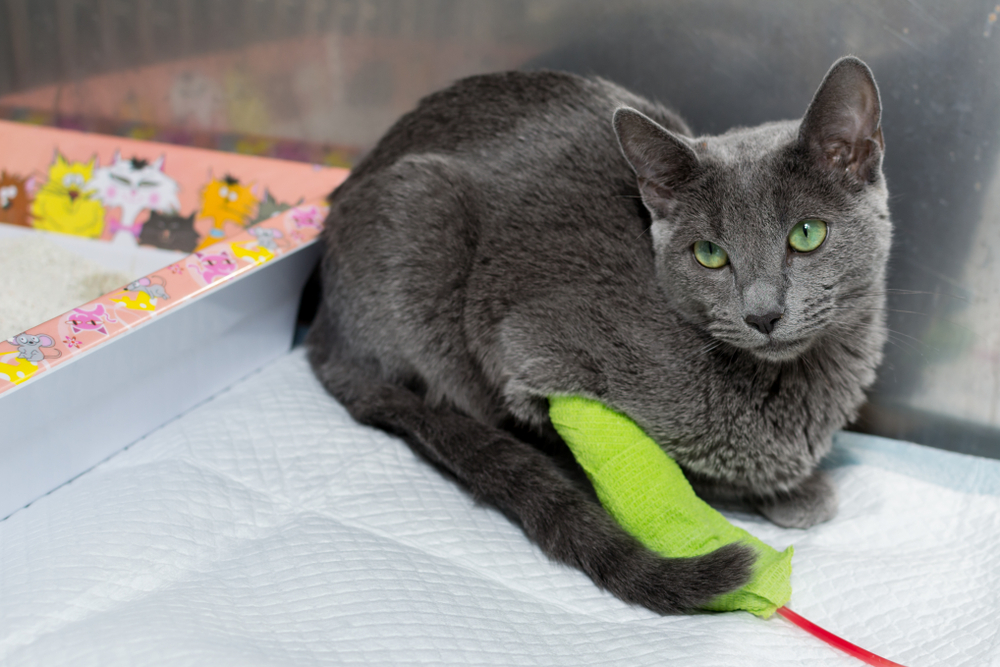Can a Cat Receive a Blood Transfusion from a Dog?
Oakland Veterinary Referral Services has a blood bank and provides blood transfusions to dogs and cats who have a pet emergency. We often ask dogs to be blood donors and have cat owners ask if we also need cat donors, but we always use canine blood. Can a cat receive a blood transfusion from a dog, and if so, in what circumstances? Our guide explains cat transfusions and when it is okay to use canine blood in feline patients.

Blood Transfusions for Cats
While feline blood is the best type of blood transfusion for a cat, cats can get blood transfusions from dogs in an emergency. This procedure, also known as a xenotransfusion, should only be done in a specific instance, or in a life-threatening situation. After receiving dog blood, cats should receive another transfusion with feline blood as soon as possible.
Situations for a Xenotransfusion
While it is not ideal, there are a few situations in which a xenotransfusion can be performed safely. These include:
- An insufficient amount of feline blood supply.
- There is no matching feline blood type. Vets can use canine blood without having to match it.
- Other transfusion options have been unsuccessful.
- A cat has an acute transfusion reaction to feline blood.
There are certain medical emergencies that require an immediate blood transfusion. If an emergency veterinarian believes a cat will die without blood, he or she will use canine blood.
How a Xenotransfusion Can Help
In an emergency, canine blood can be beneficial to a feline patient. On top of providing a life-saving supply of blood, it also brings certain benefits that can help a cat heal. These include:
- It’s easy to give canine blood to a cat
- The procedure can be done quickly
- It eliminates the need for blood typing
- It often costs less than a feline blood transfusion
- It will not transmit feline leukemia
If a doctor asks for permission to perform a xenotransfusion on your cat, you can feel confident granting it.
Why It’s Not a Long-Term Solution Though
Canine blood can only survive in a feline body for a few days before the cat’s immune system begins to destroy it. Some cats might also have antibodies that reject canine blood, which can cause a bad reaction to a transfusion. As with any transfusion, a xenotransfusion could also transfer certain parasites or infections from a dog into a cat’s system. A second xenotransfusion can be fatal for a cat, so if it doesn’t work the first time, doctors will need to try something else.
Can a cat receive a blood transfusion from a dog? The answer is yes but only in an emergency and must be followed up within a couple of days with a transfusion of feline blood.
Oakland Veterinary Referral Services has an in-house blood bank that operates 24 hours a day to ensure we have access to blood when we need it. Our emergency care services are prepared to handle a wide range of pet emergencies. When you need help for your pet fast, we are here for you. Call (248) 334-6877 to learn more about our services or to schedule an appointment.


